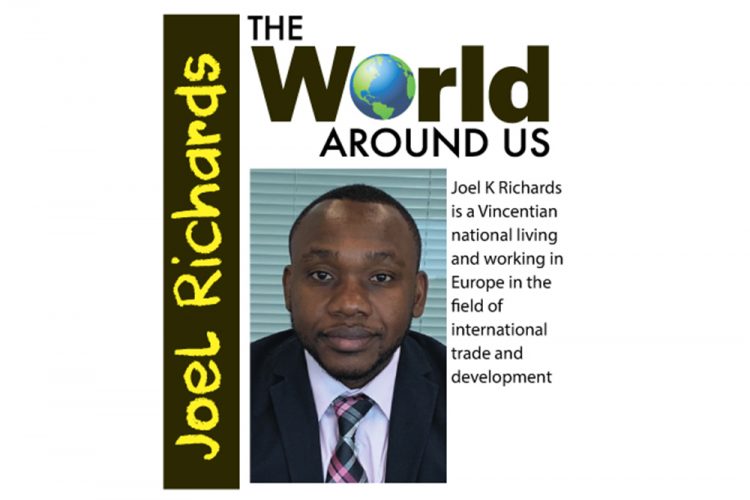The drift towards international anarchy

The default meaning of anarchy in the context of international affairs is that there is no world government or no organising principle (or sets of principles) for the conduct of international relations. The implication of international anarchy is simply chaos. To imagine this chaos, think of a situation in which you are driving on a busy highway, you come to a major intersection with traffic going in multiple directions. However, there are no stop lights, no roundabout, and no traffic wardens. In this scenario, vehicles crash into each other, pedestrians and cyclists get run over and proper road etiquette is non-existent. A world of anarchy is tantamount to driving on a highway with no rules.
Since the end of the Second World War, while there has been no international government per se, the world has largely coalesced around a Liberal International Order comprising of multiple political and economic actors serving as its vanguards. We have the United Nations (UN) which aims to maintain international peace and security, along with its specialised agencies, some of which promote global cooperation on issues such as health, children’s rights, women’s rights and economic affairs. On matters of international finance there are the International Monetary Fund (IMF) and the World Bank. In terms of global trade governance, there is the World Trade Organisation (WTO). These global institutions have helped to shore up the Liberal International Order for many decades. However, this Order might now be in peril.
According to the US think tank, RAND Corporation, a series of key developments since 2014 “suggest that the order could be in much more peril than the data through 2014 would suggest.” These events include Russian aggression in Ukraine, the vote in the UK to leave the European Union, the election of Donald Trump as US President, and the ongoing influence of far-right political parties in Europe. More recently, the global response (or lack thereof) to the novel coronavirus (COVID-19) pandemic provides another indication that the global order as we know it might be coming to an end, unless drastic measures are taken to reverse the negative trends.
Writing in the May/June 2020 issue of the Foreign Affairs Magazine, former Australian Prime Minister Kevin Rudd, argues that neither a new “Pax Sinica” (Chinese-led world order) nor a renewed “Pax Americana” (American-led world order) will rise from the ruins of the COVID-19 crisis. Instead, Rudd contends that “the result will be a continued slow but steady drift toward international anarchy across everything from international security to trade to pandemic management.”
Lately, I have been meeting weekly with a group of Caribbean people to discuss, among other things, regional and global developments. In our last discussion, someone inquired about where the Caribbean fits in the context of the changes taking place globally. Questions were also asked about who will lead the region’s voice in the proverbial international wilderness. I did not have an immediate answer to these reflections. Nonetheless, such reflections remind me that the Caribbean does have a stake in what is happening globally.
For Caribbean countries, their small size and limited material power suggest that they have more to lose in a state of global anarchy. For these countries, international rules and global cooperation help them to better navigate international affairs in terms of being able to access finance, participate in international trade, fight poverty and diseases, and provide certain security guarantees to ensure that their sovereignty is respected. Picture a scenario where a herd of rabbits is caught up in a stampede by a herd of elephants. It is highly likely that the rabbits will risk death or serious injury. In international affairs, small states are the rabbits and the large powerful states are the elephants. If the elephants are allowed to run amok, the rabbits have little chance of survival.
It is quite possible that the Liberal International Order has run its course and it is also possible that rumours of its demise are grossly exaggerated. However, most of us might agree that the health of the global order is in jeopardy. The Caribbean is certainly no stranger to imprinting its ideas of how things ought to be on the consciousness of the world. Right now, the world needs more cooperation, not less; moral leadership, not corrupt self-interest; and multilateral solutions, not hyper-nationalism. Who will be the messenger?









